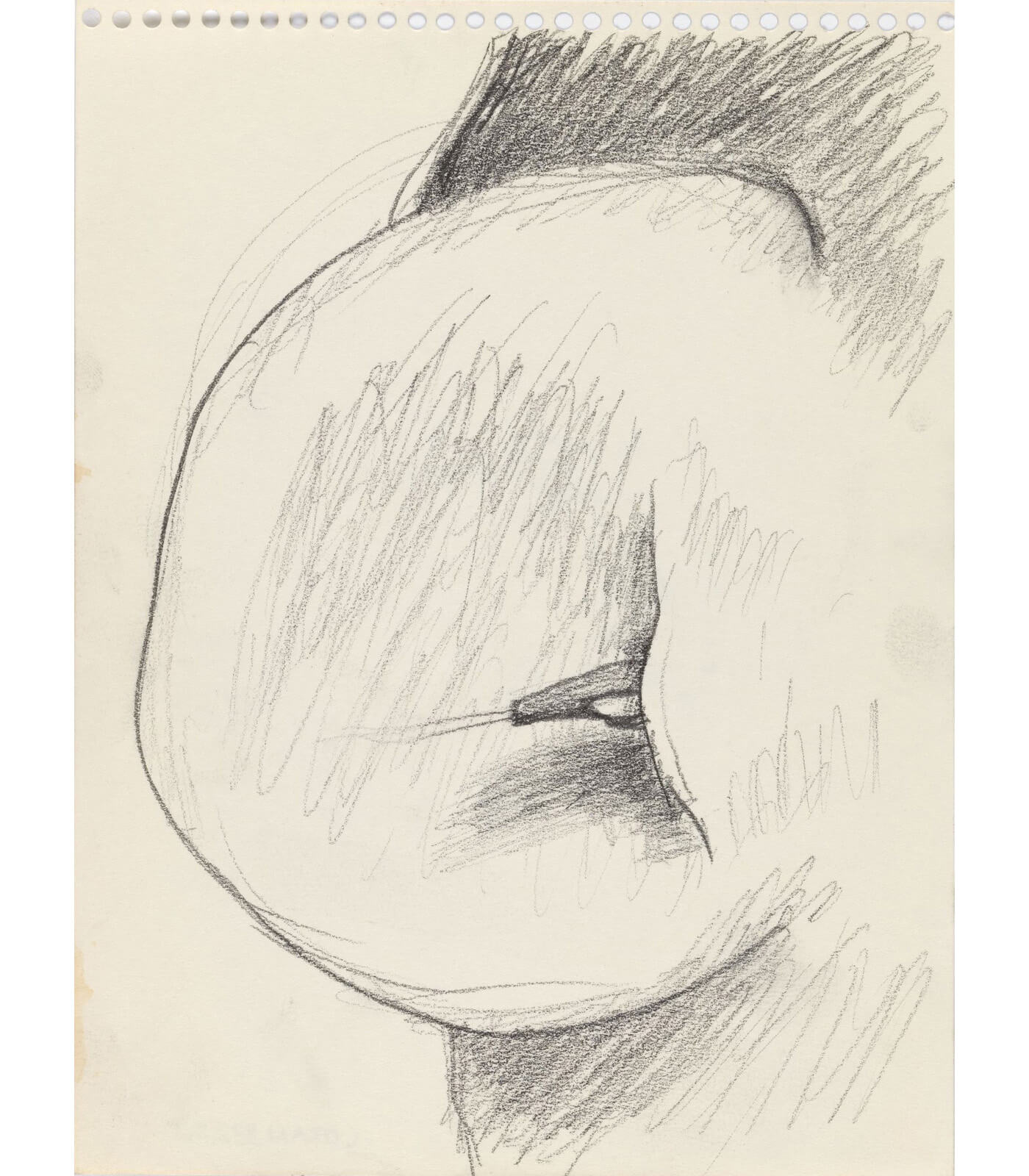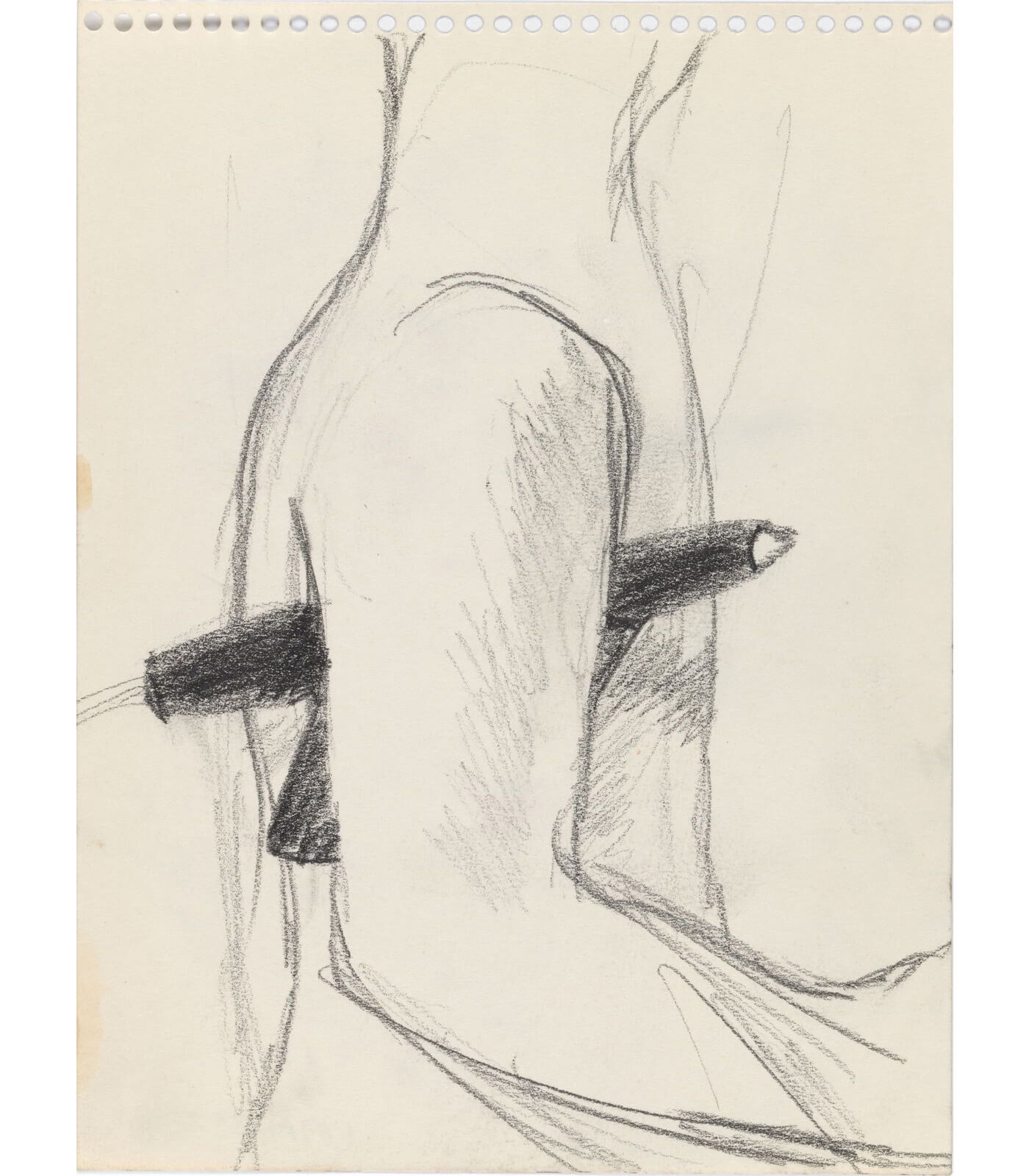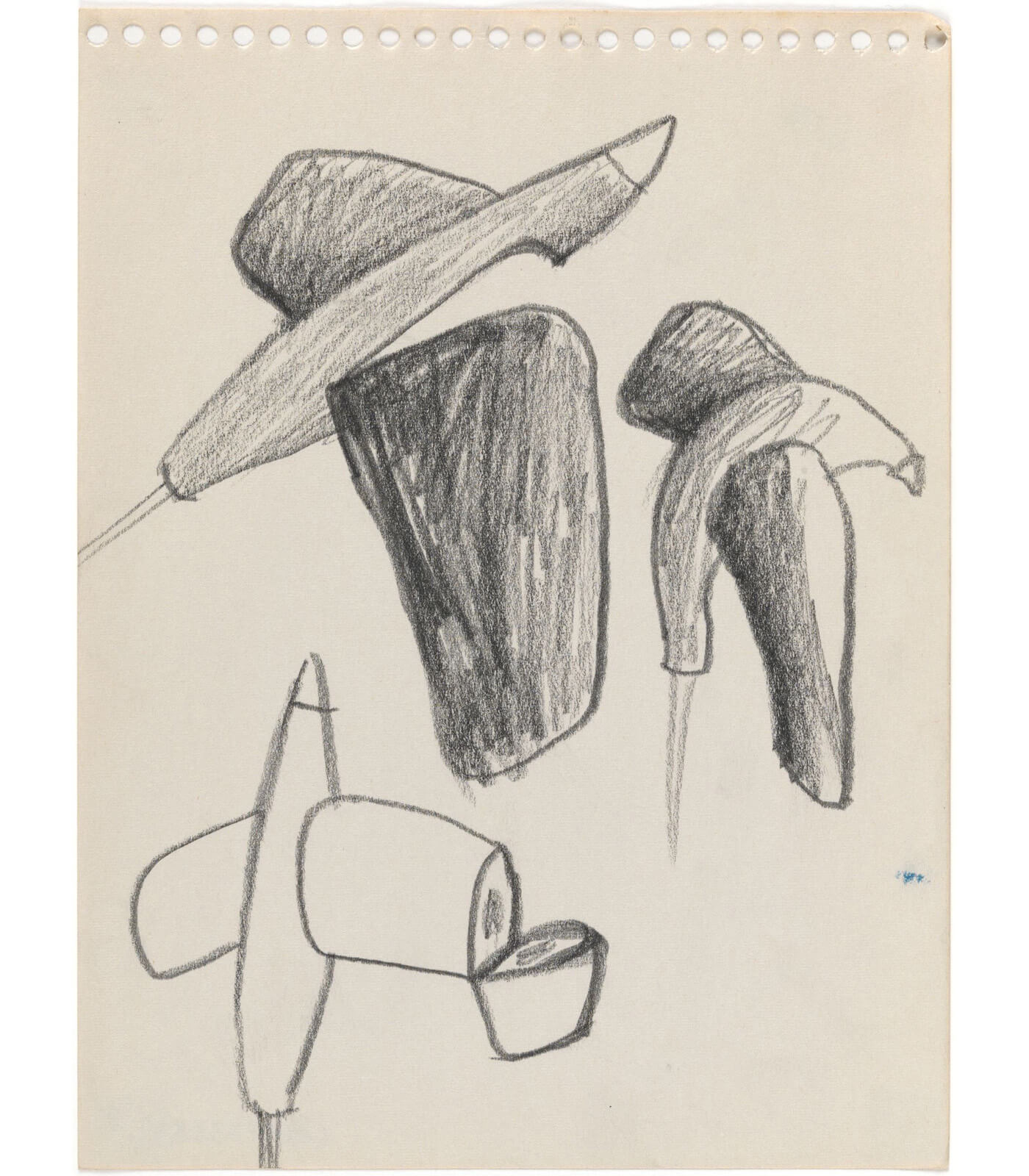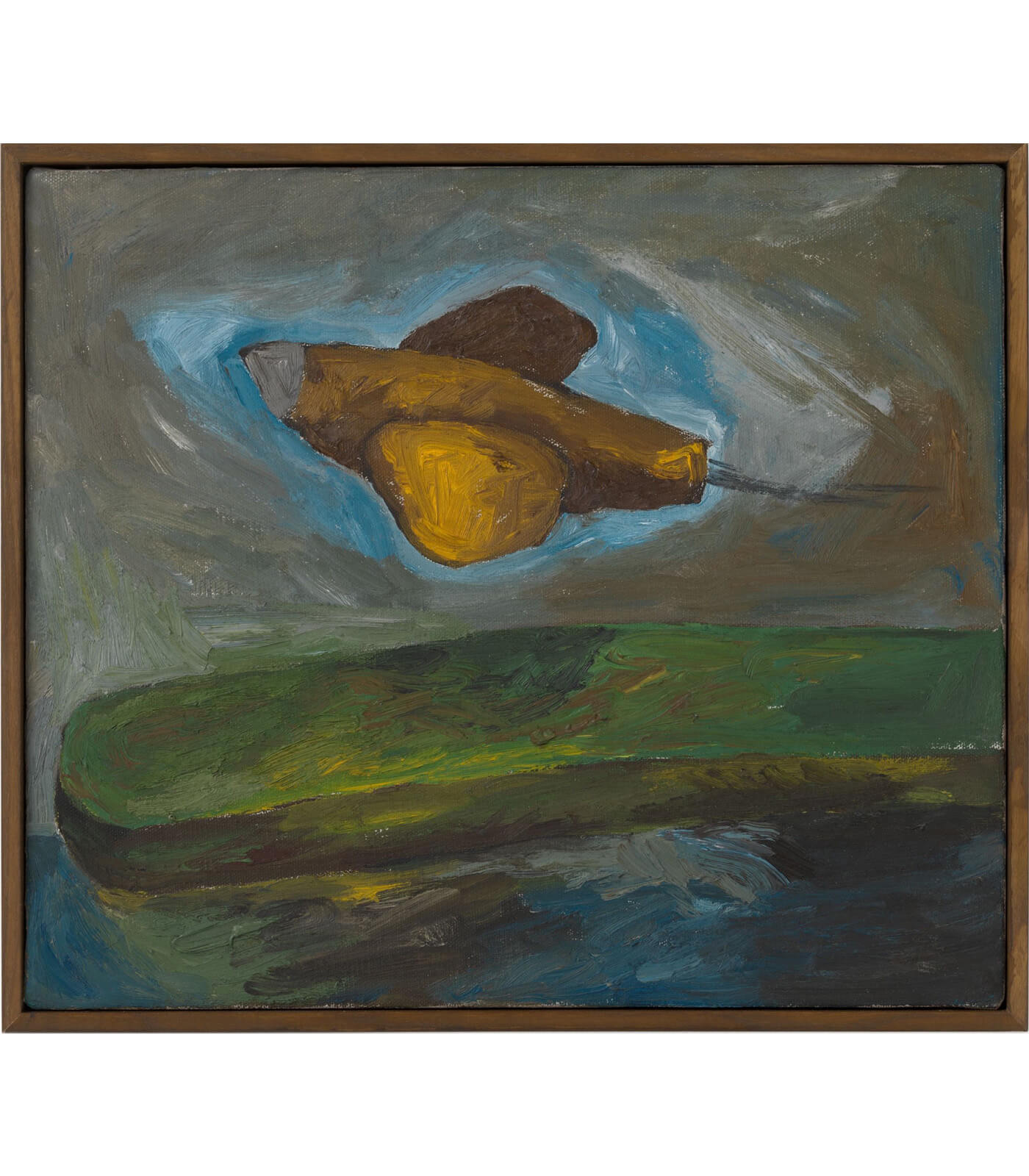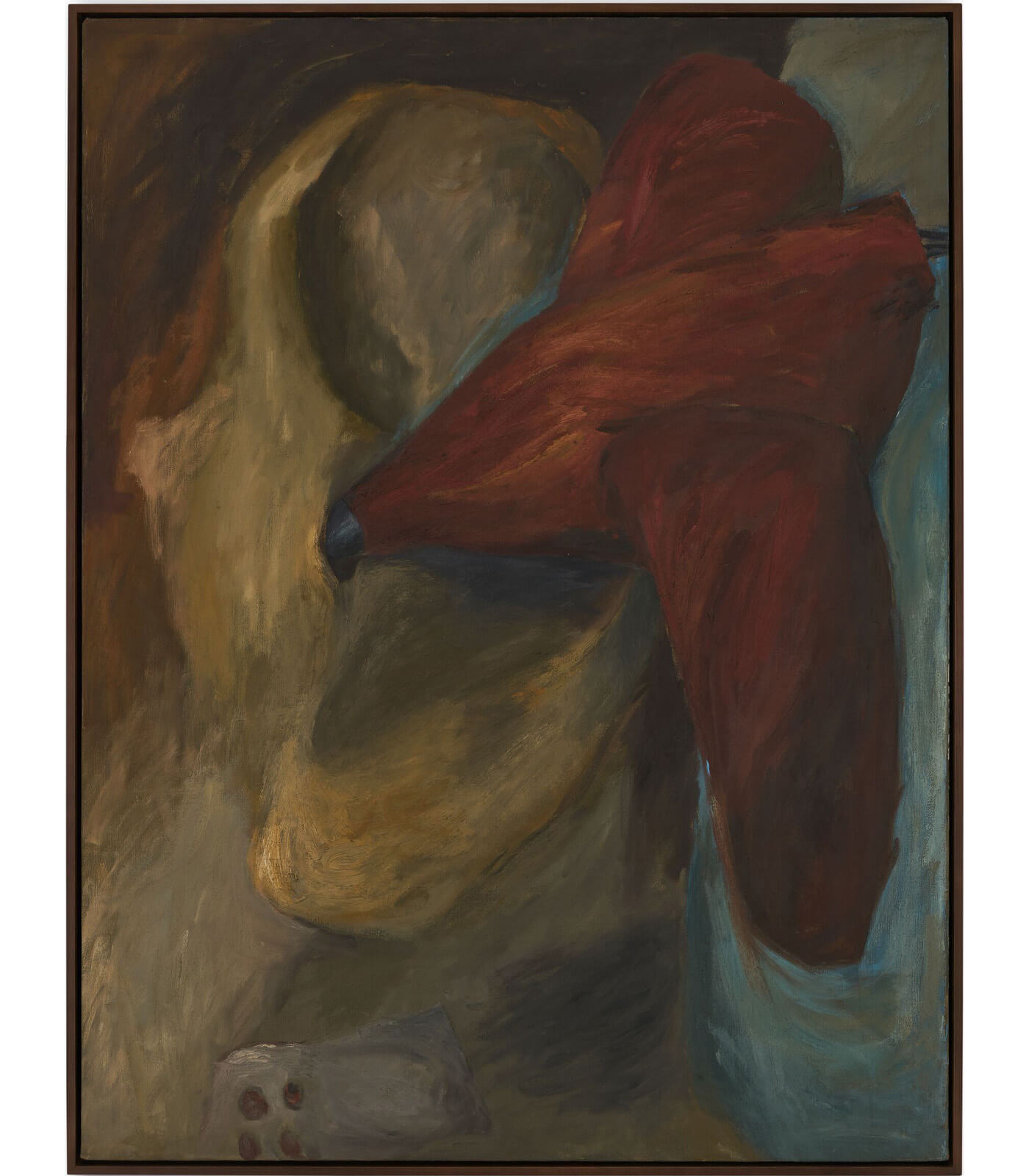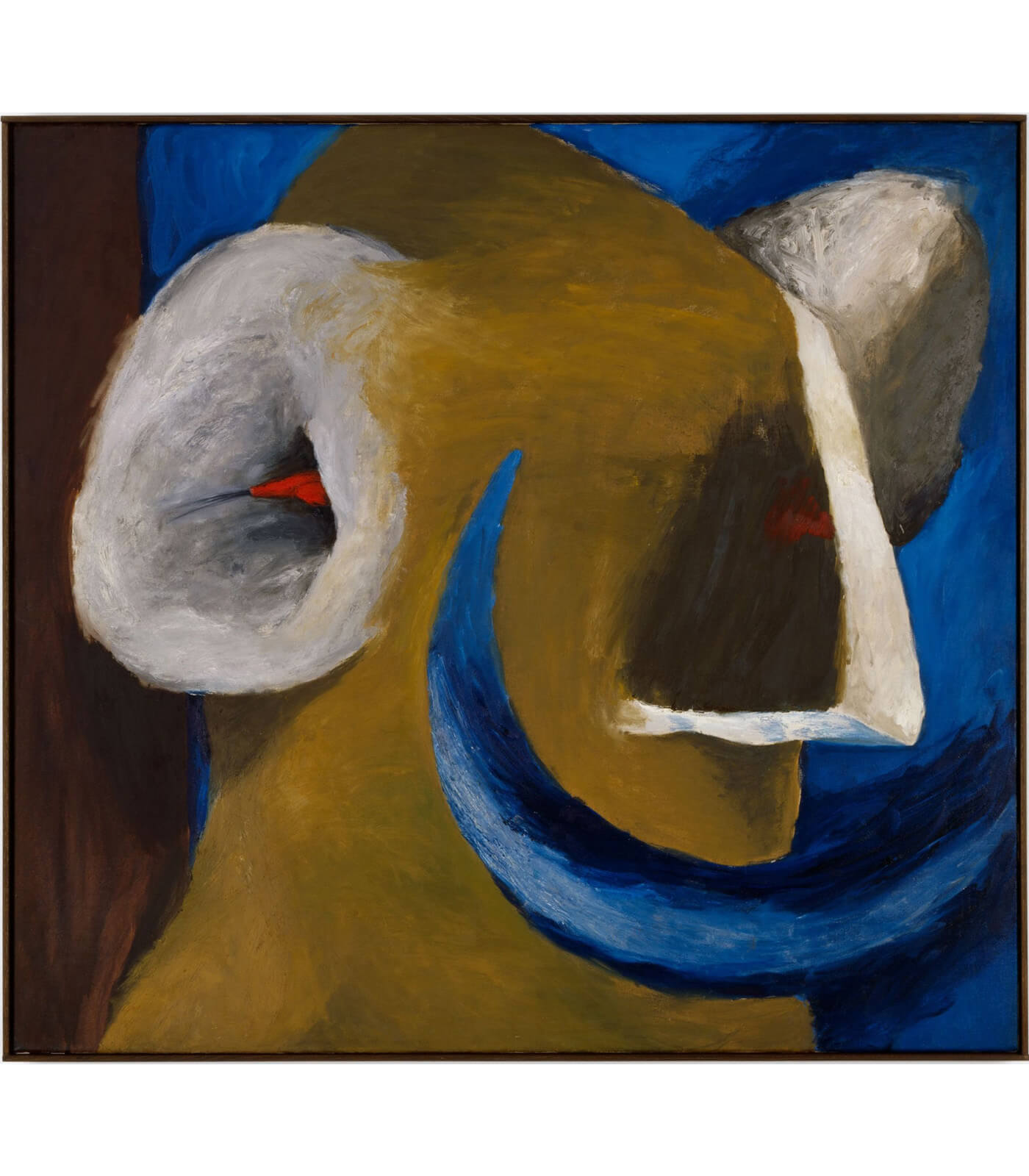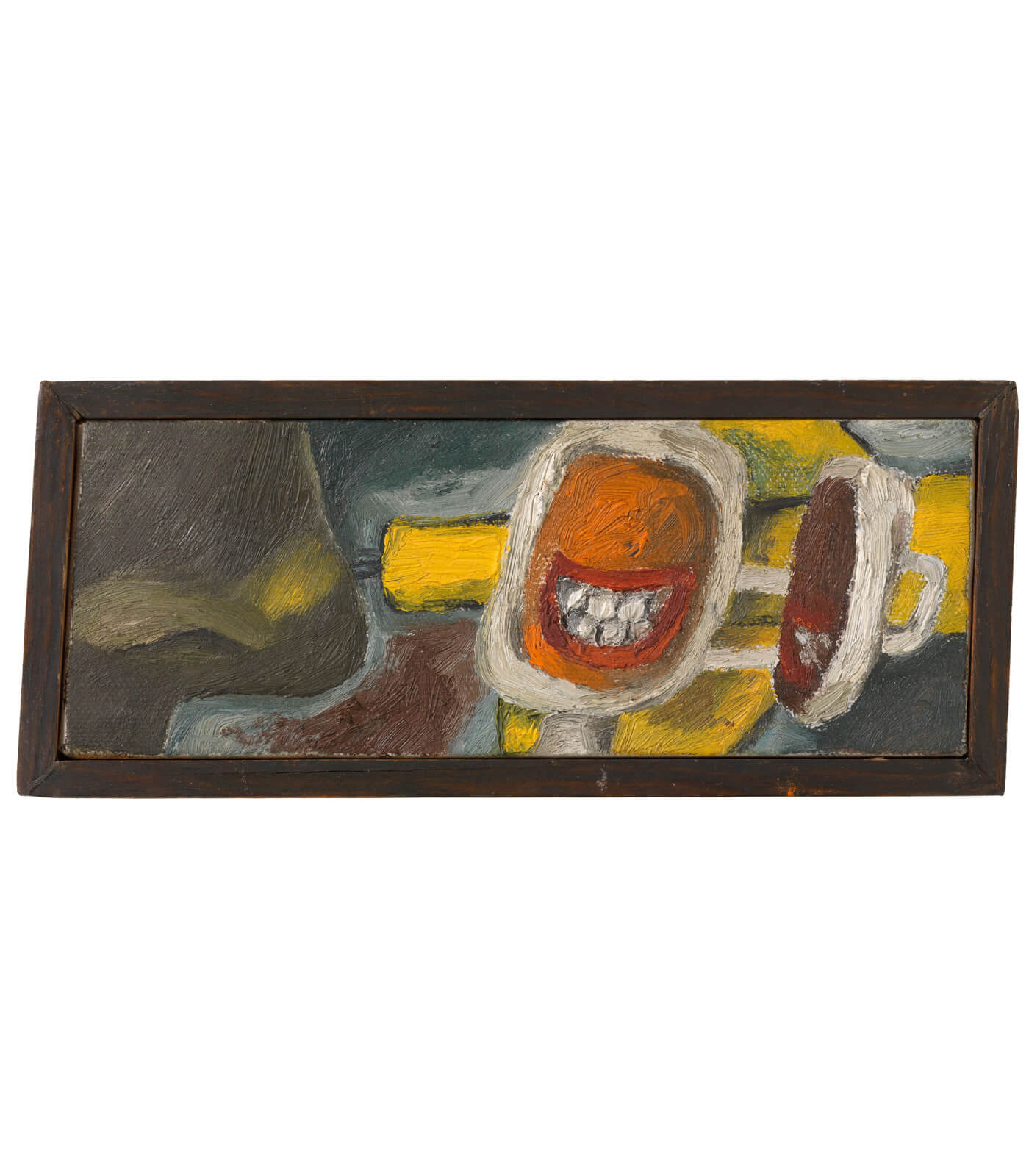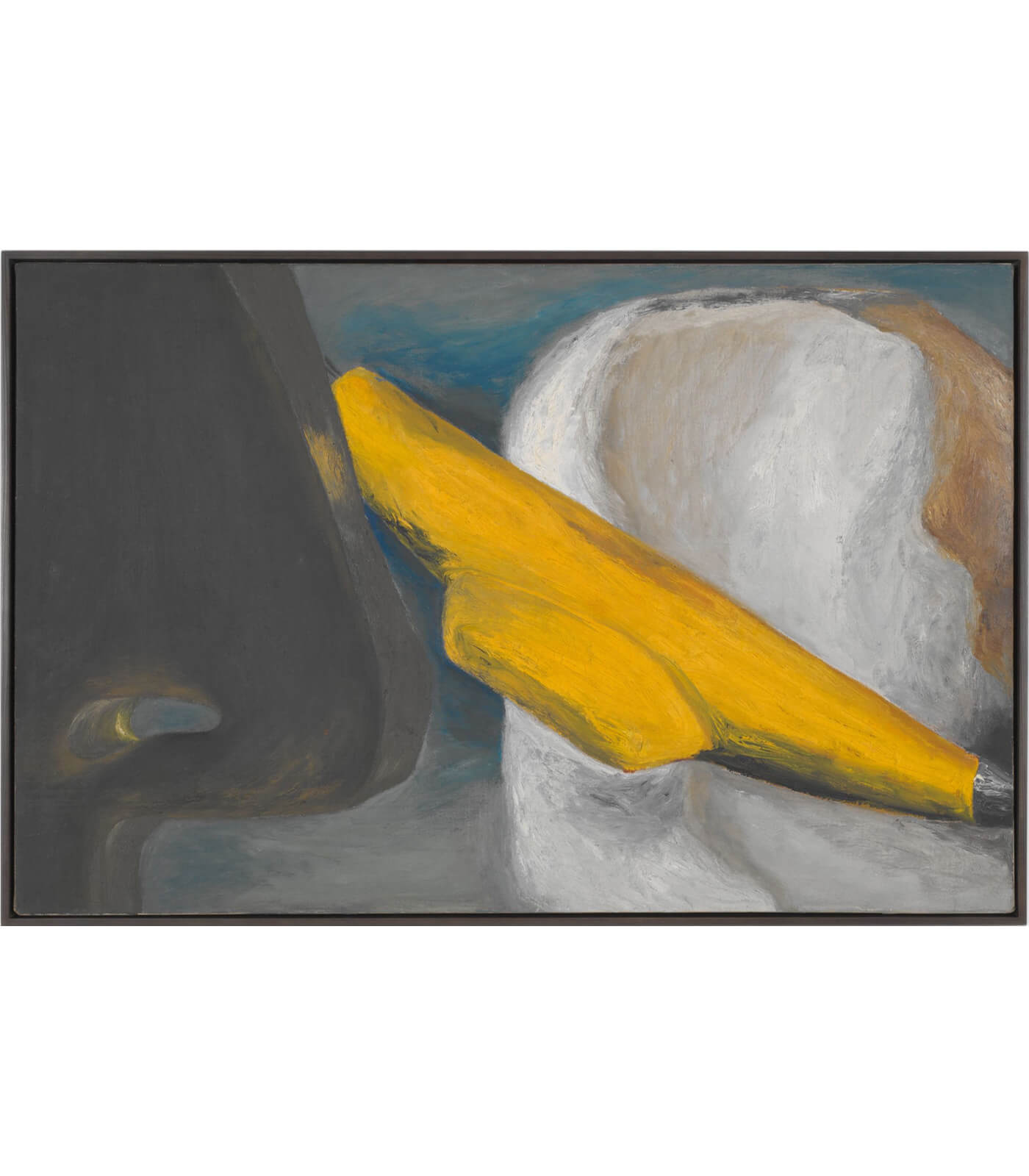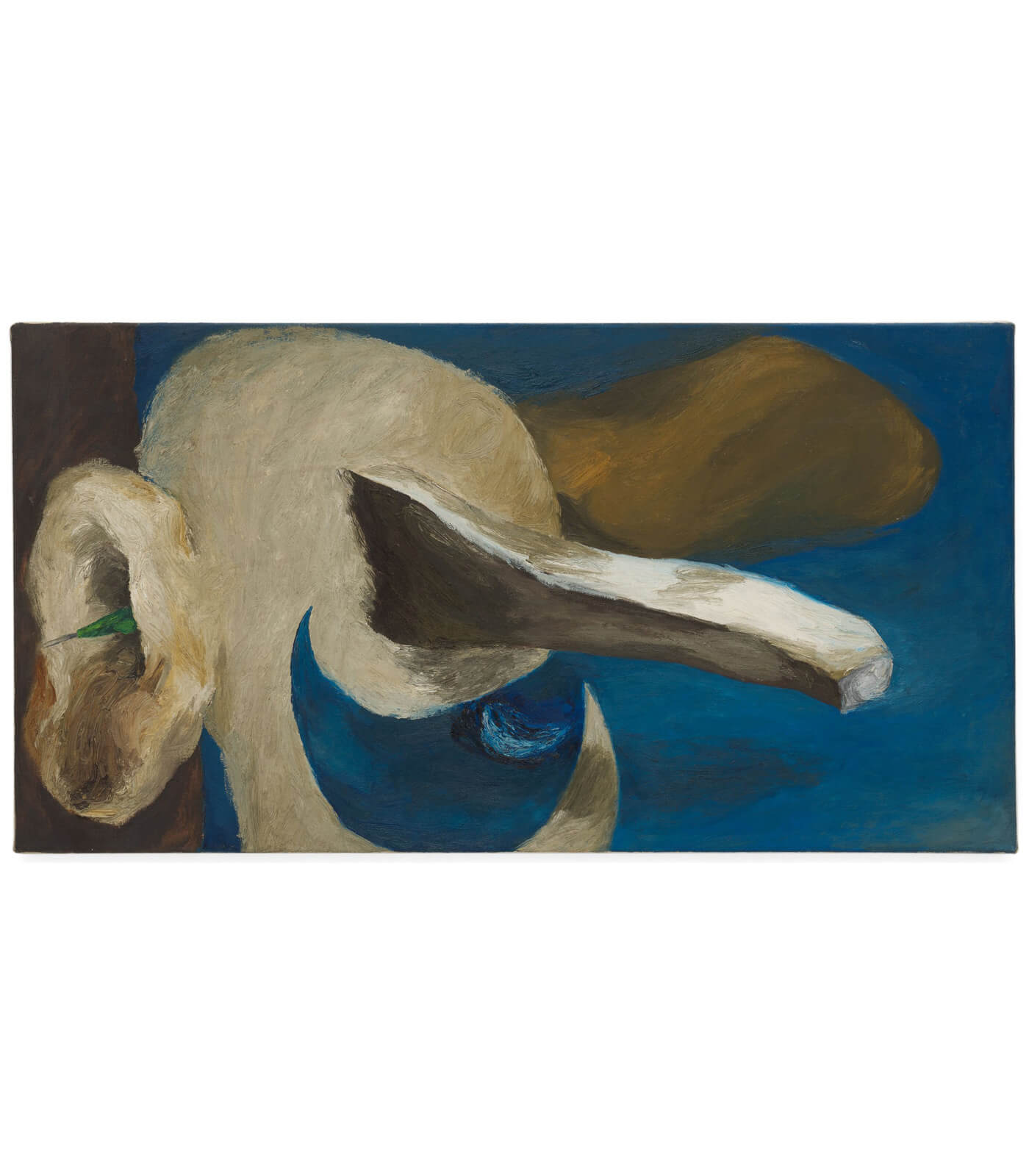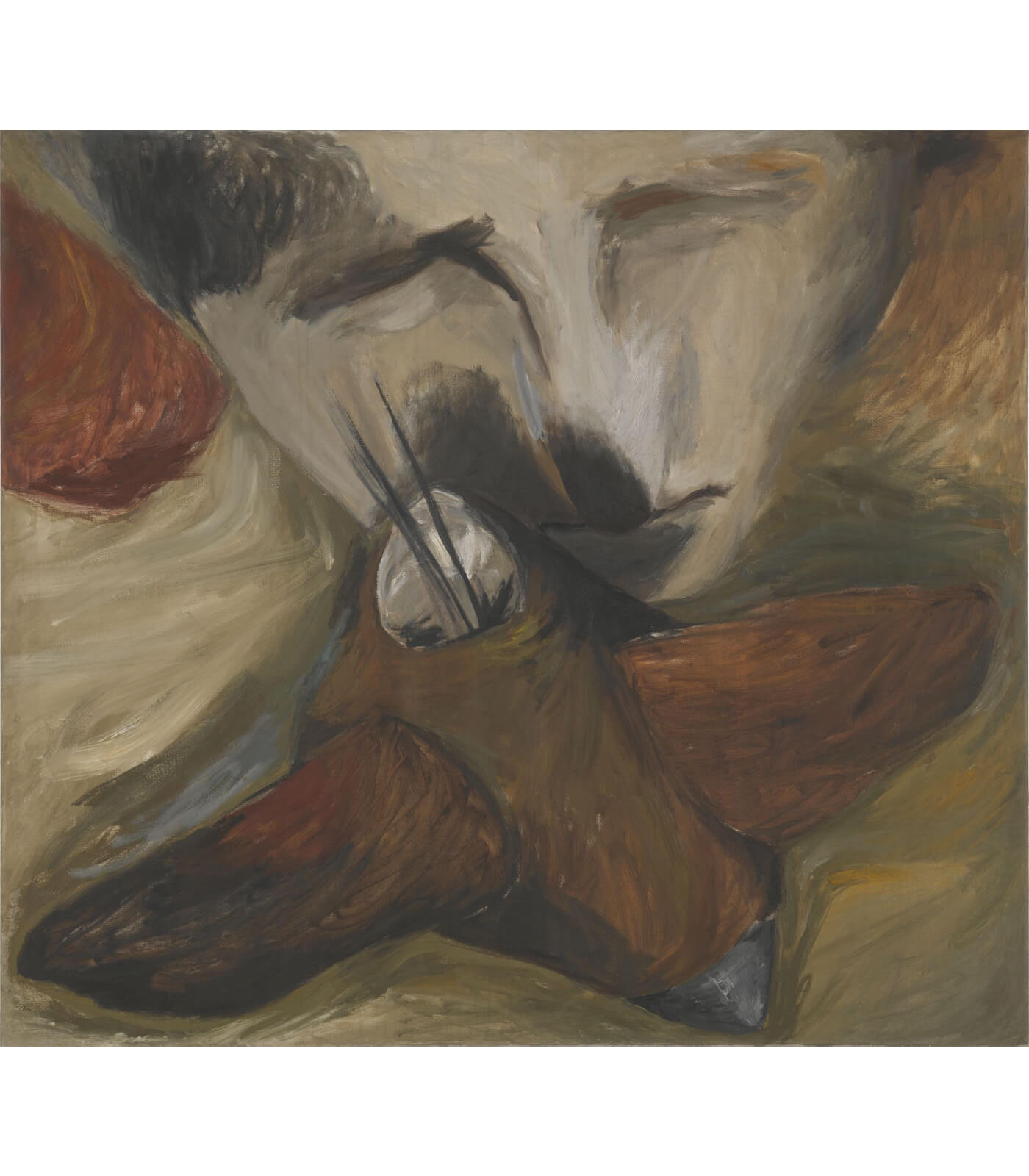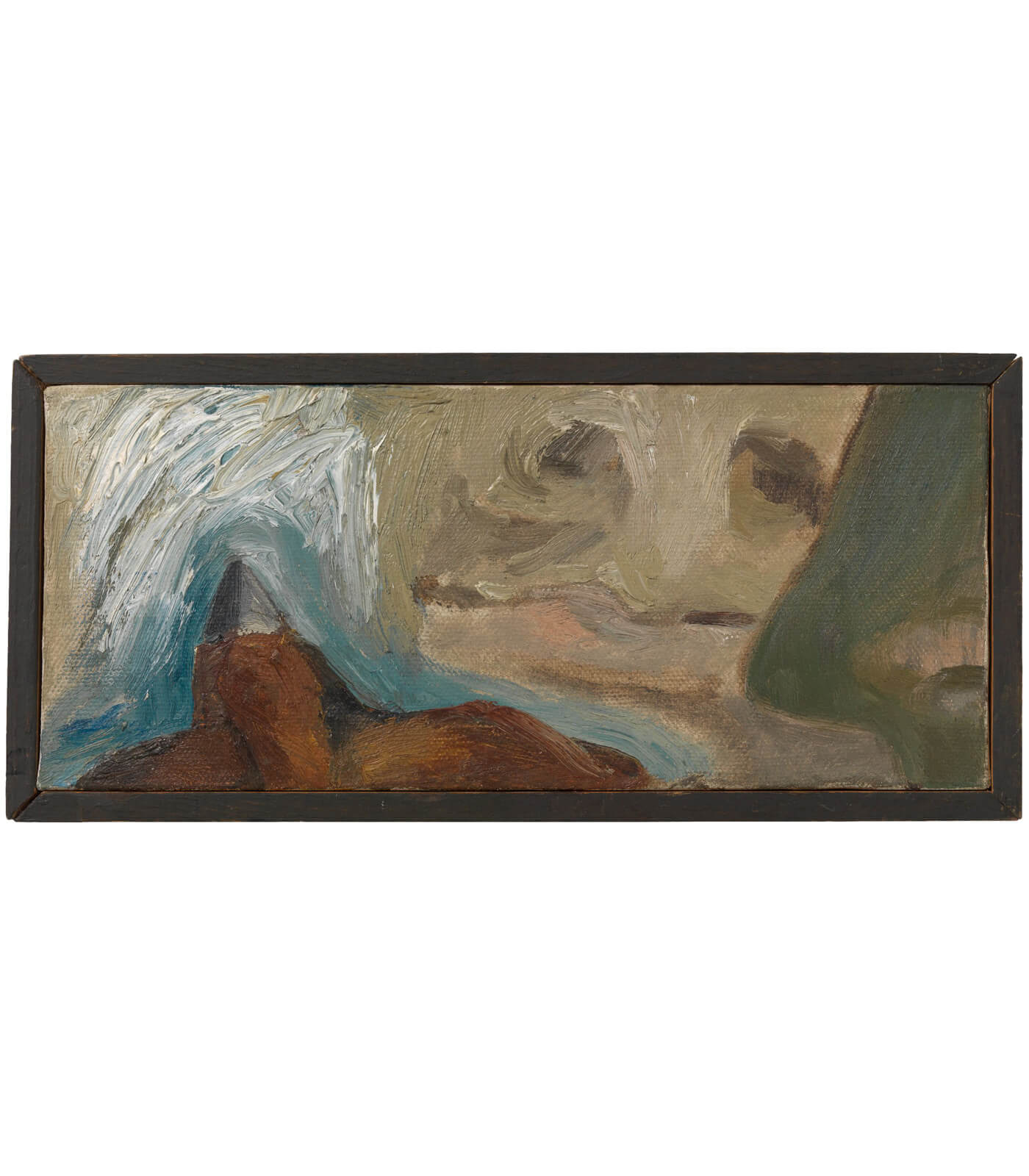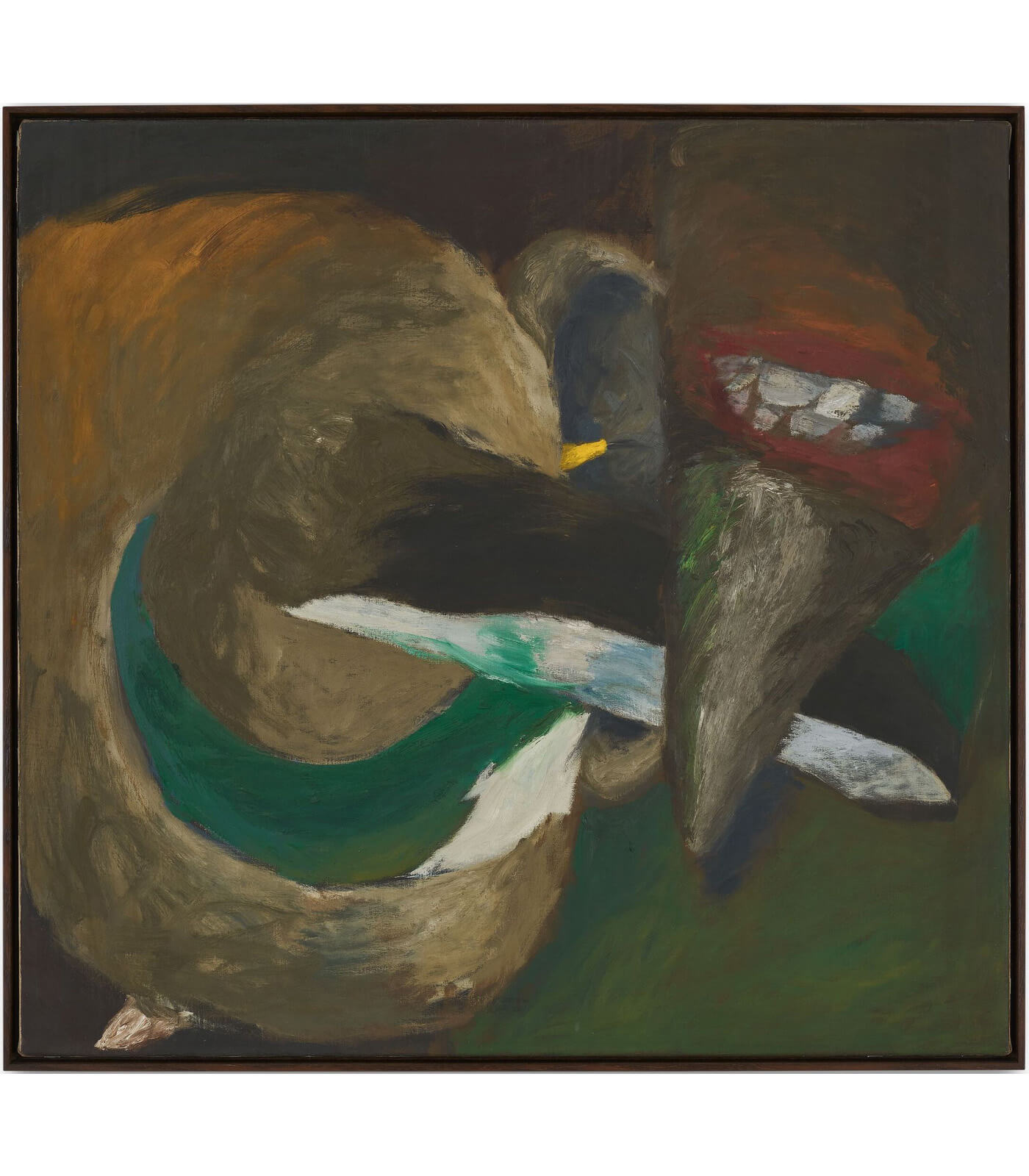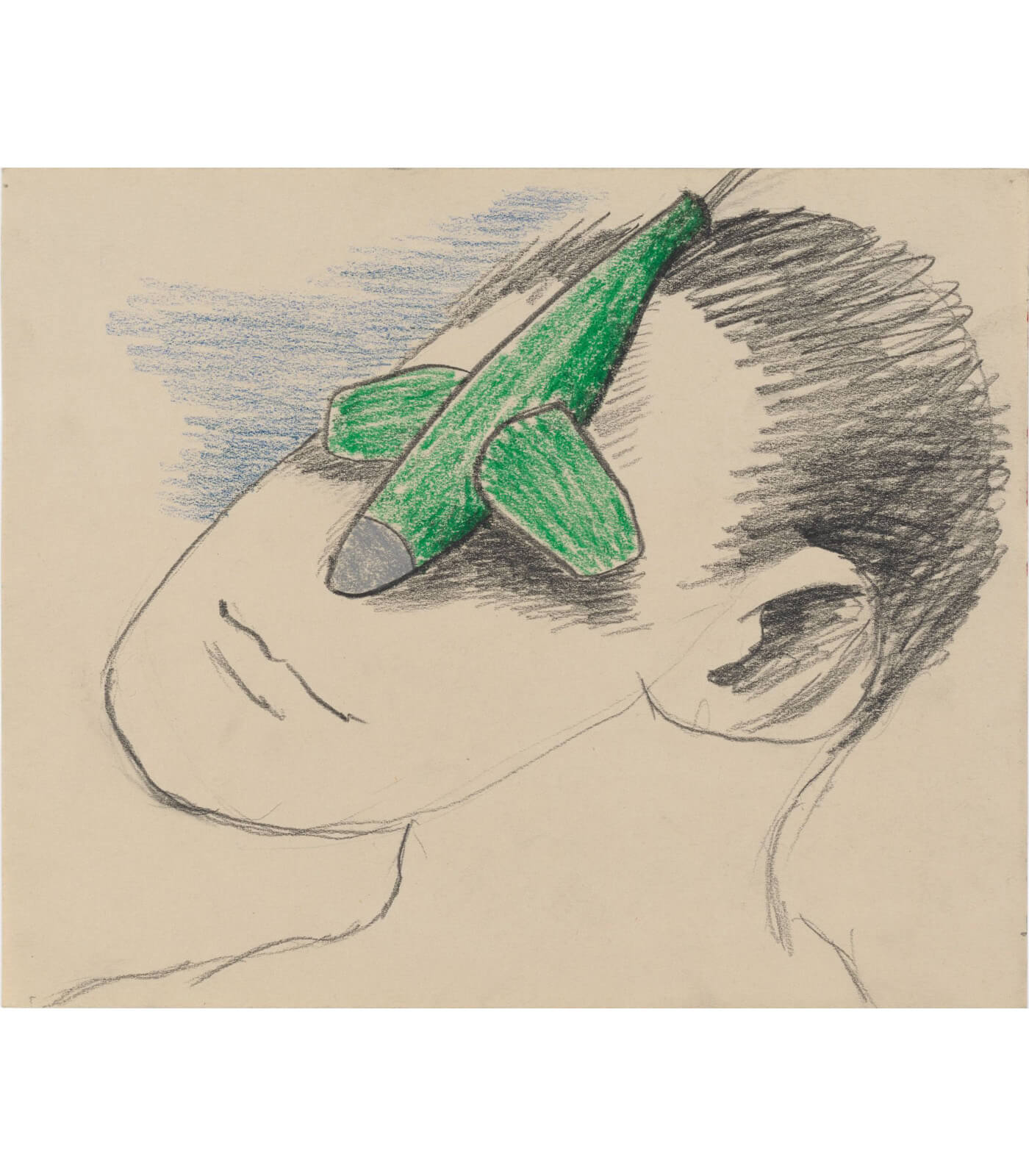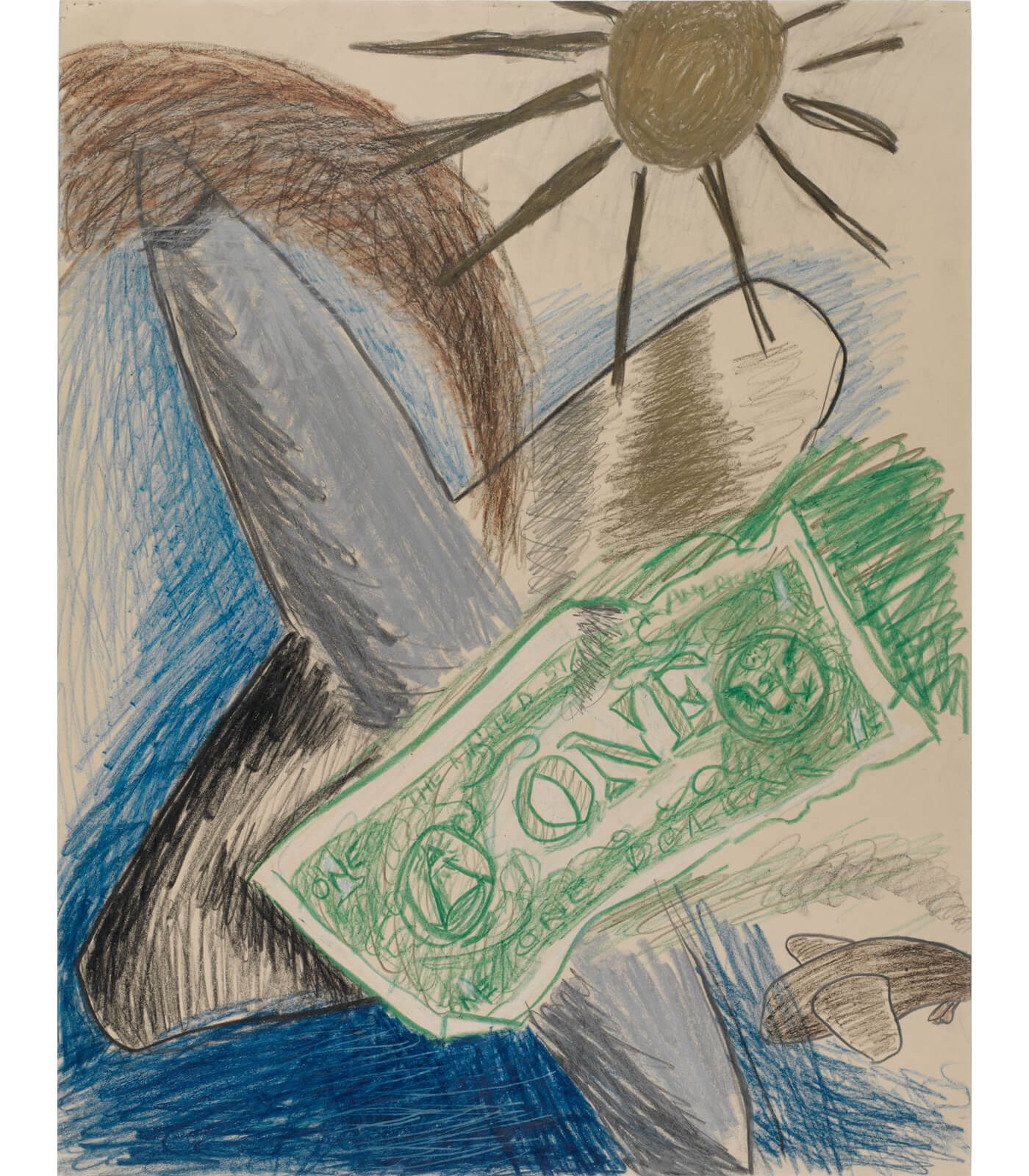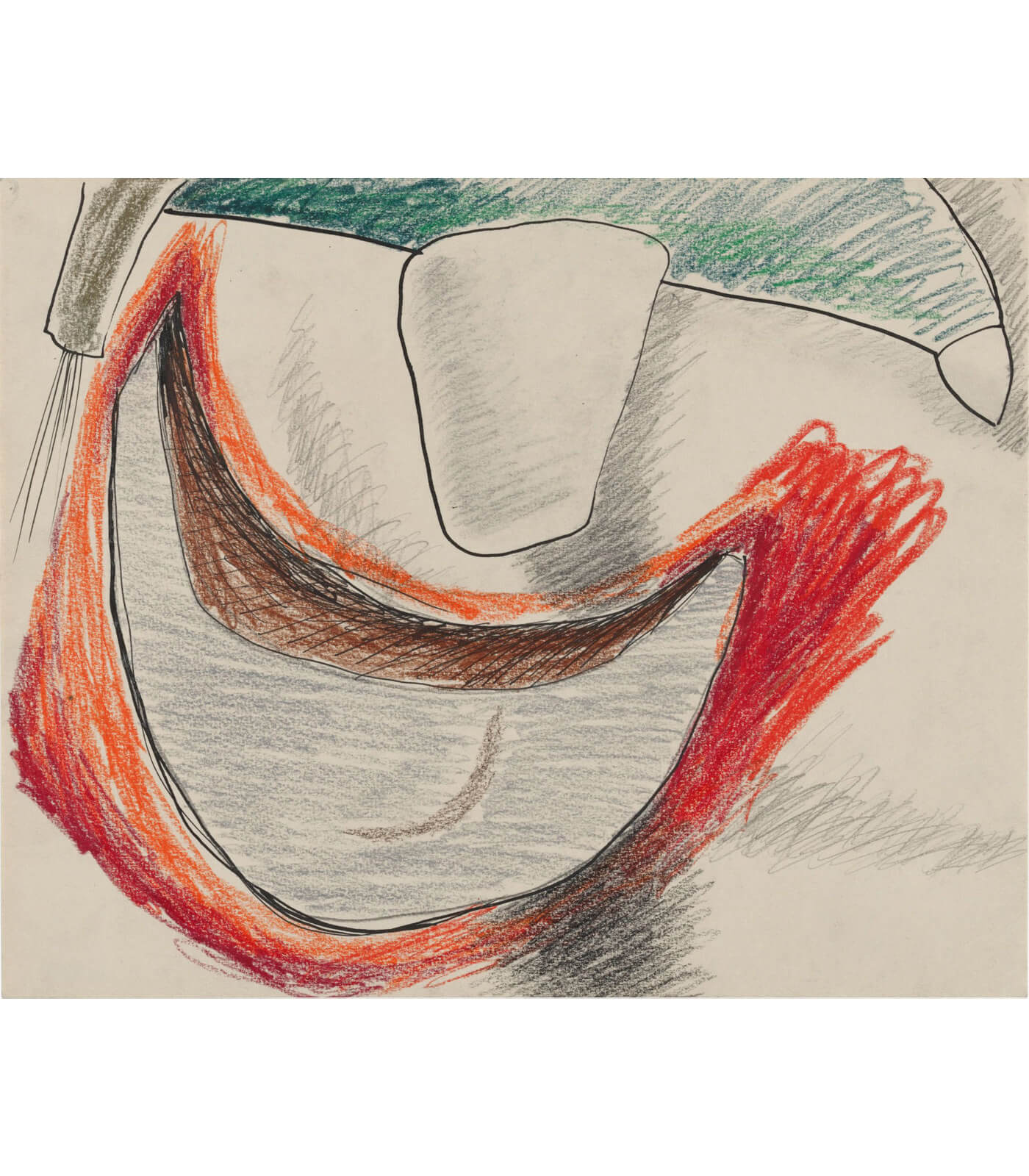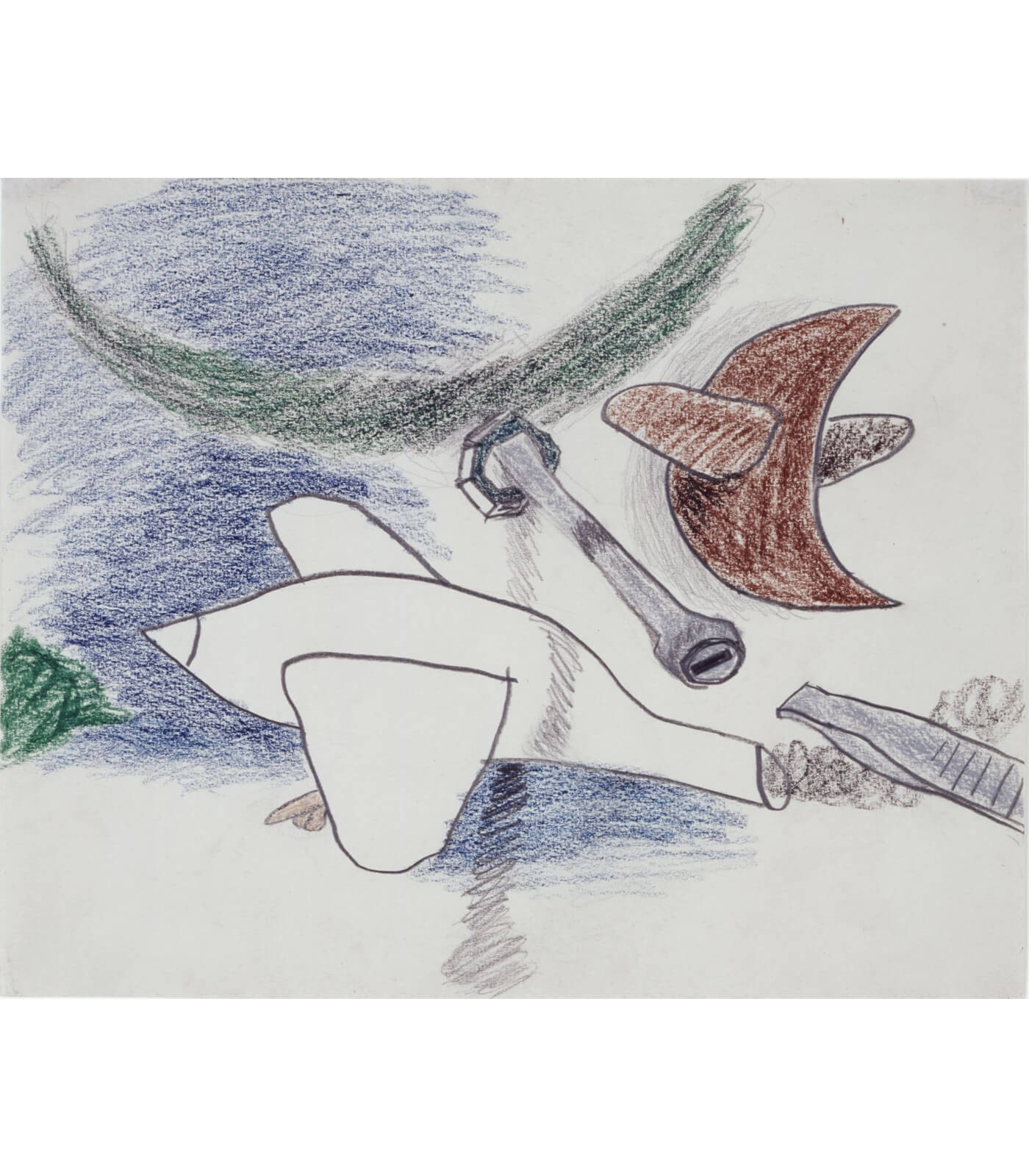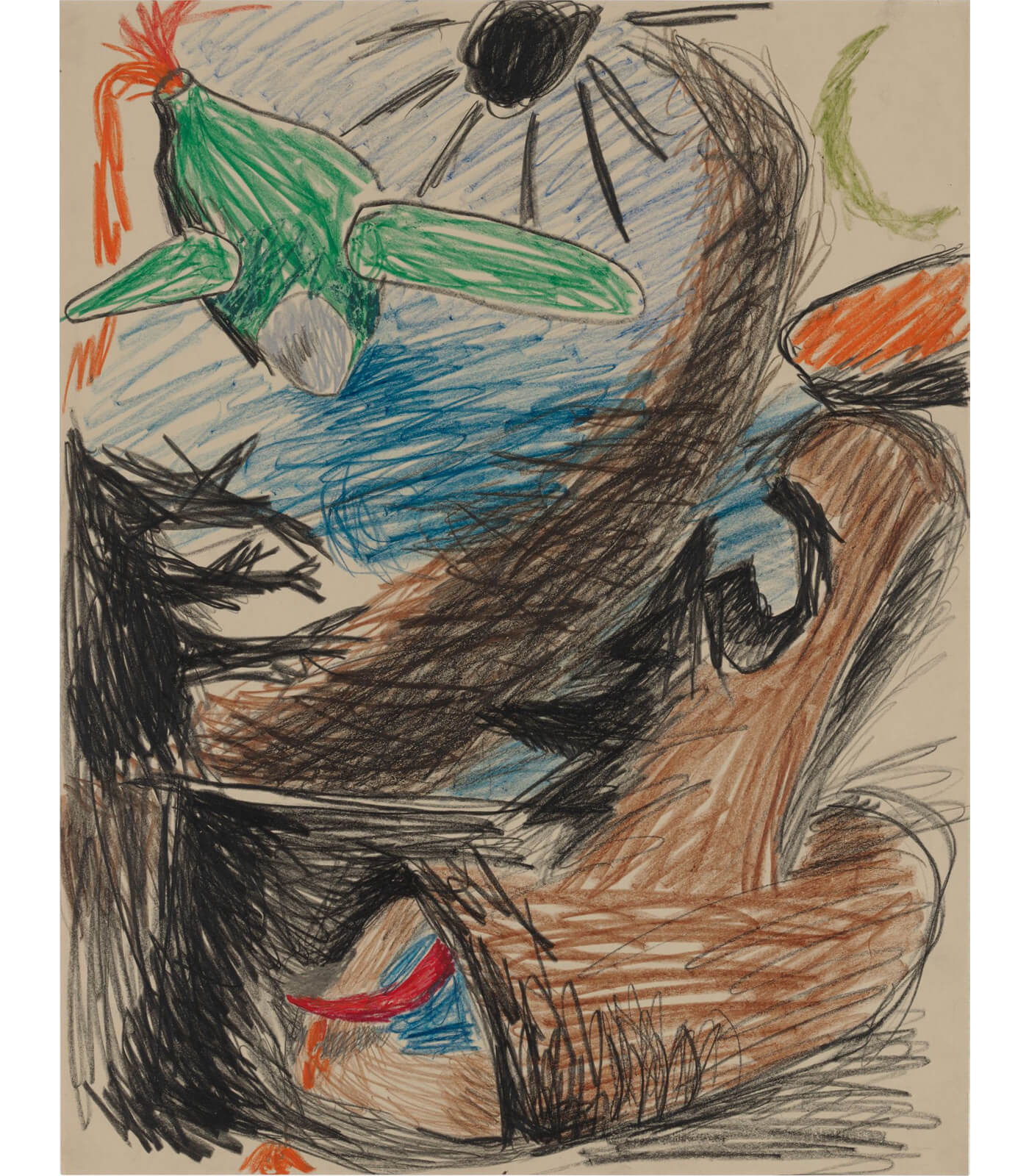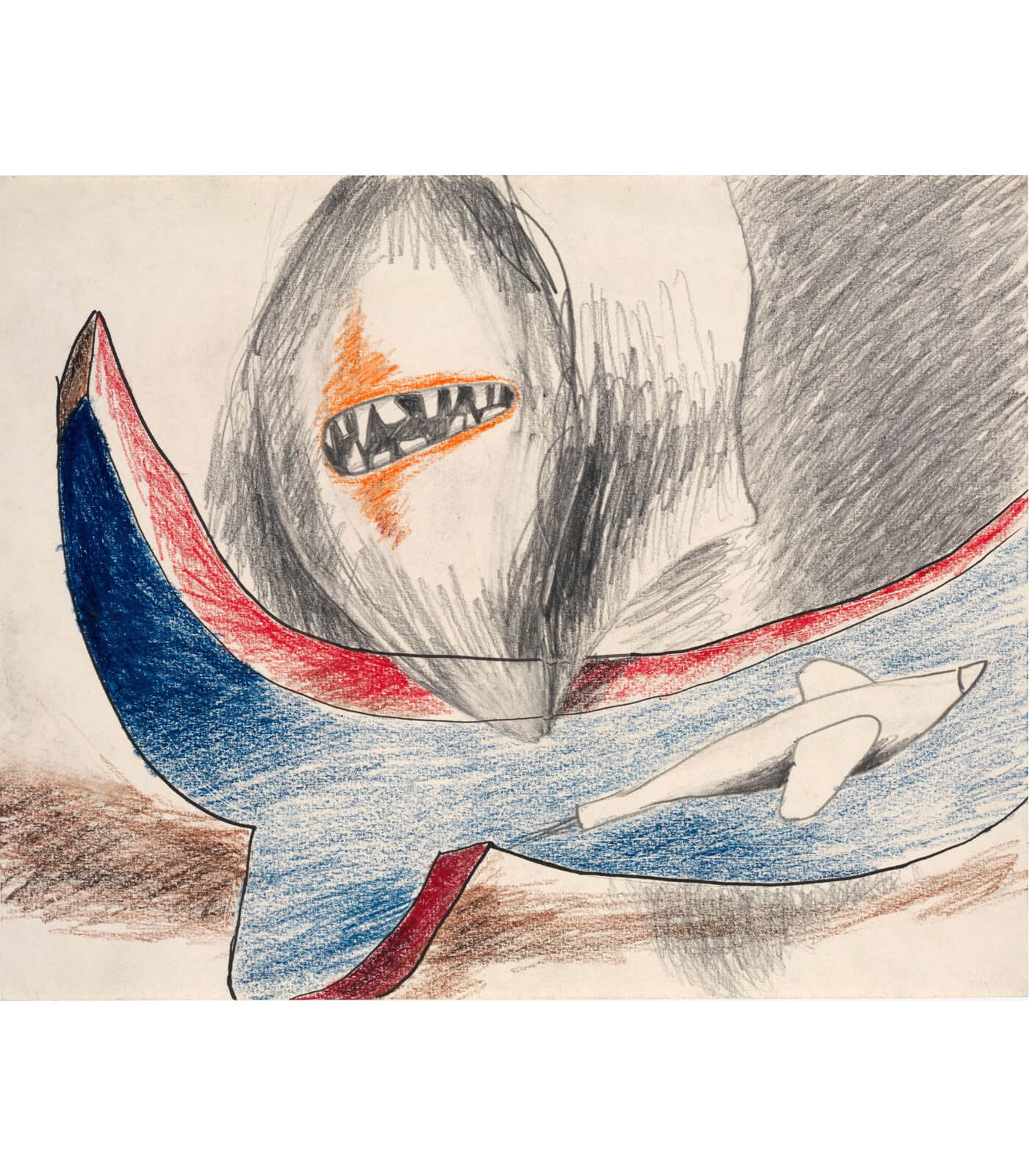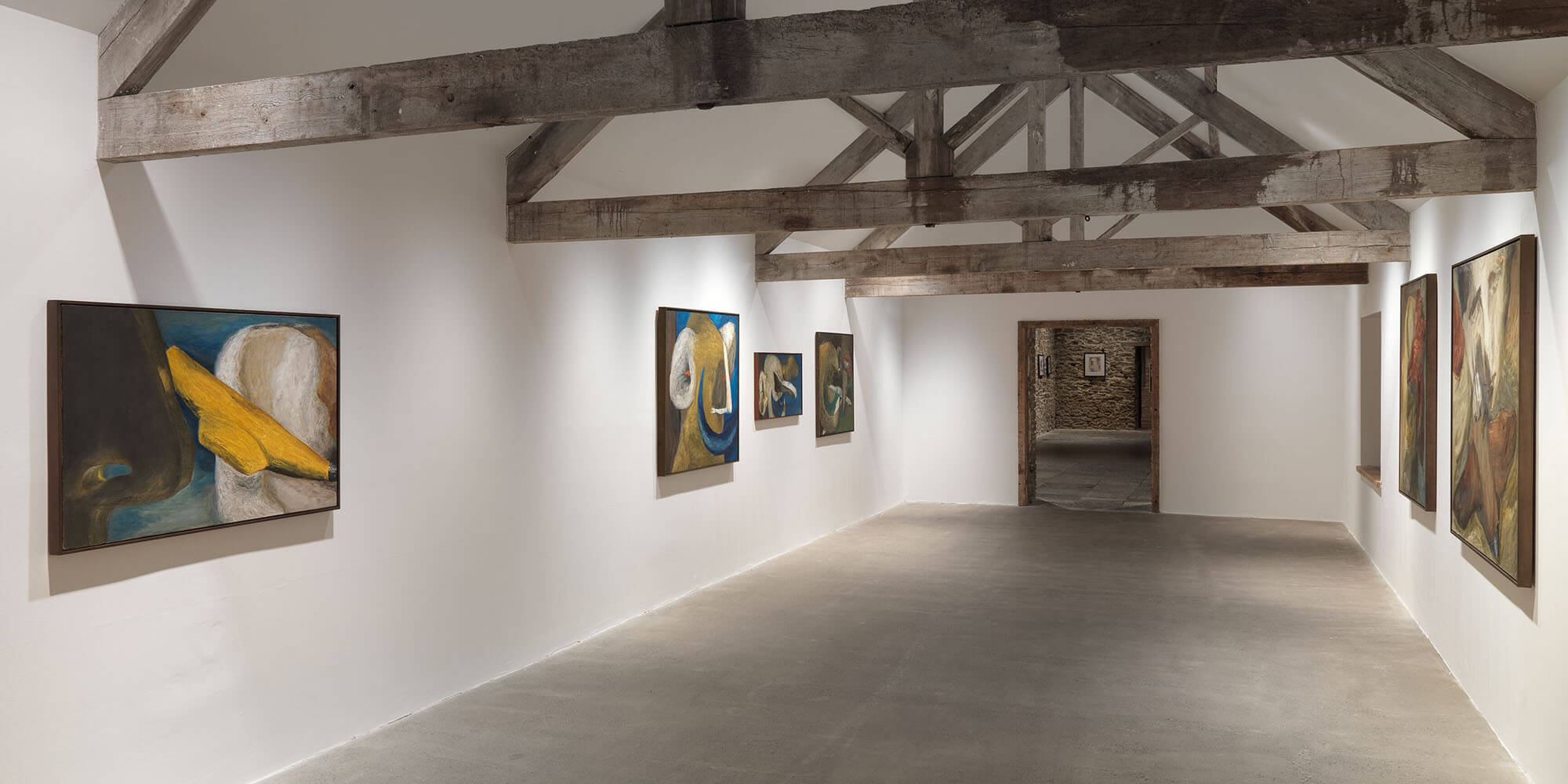
Lee Lozano
3 October 2020 – 10 January 2021
Somerset
‘Her ability to develop a highly personal painterly style within a social narrative format at a time when most artists were searching for an alternative to expressionism stands as a major accomplishment of 20th century American Art.’—Eric Lawing
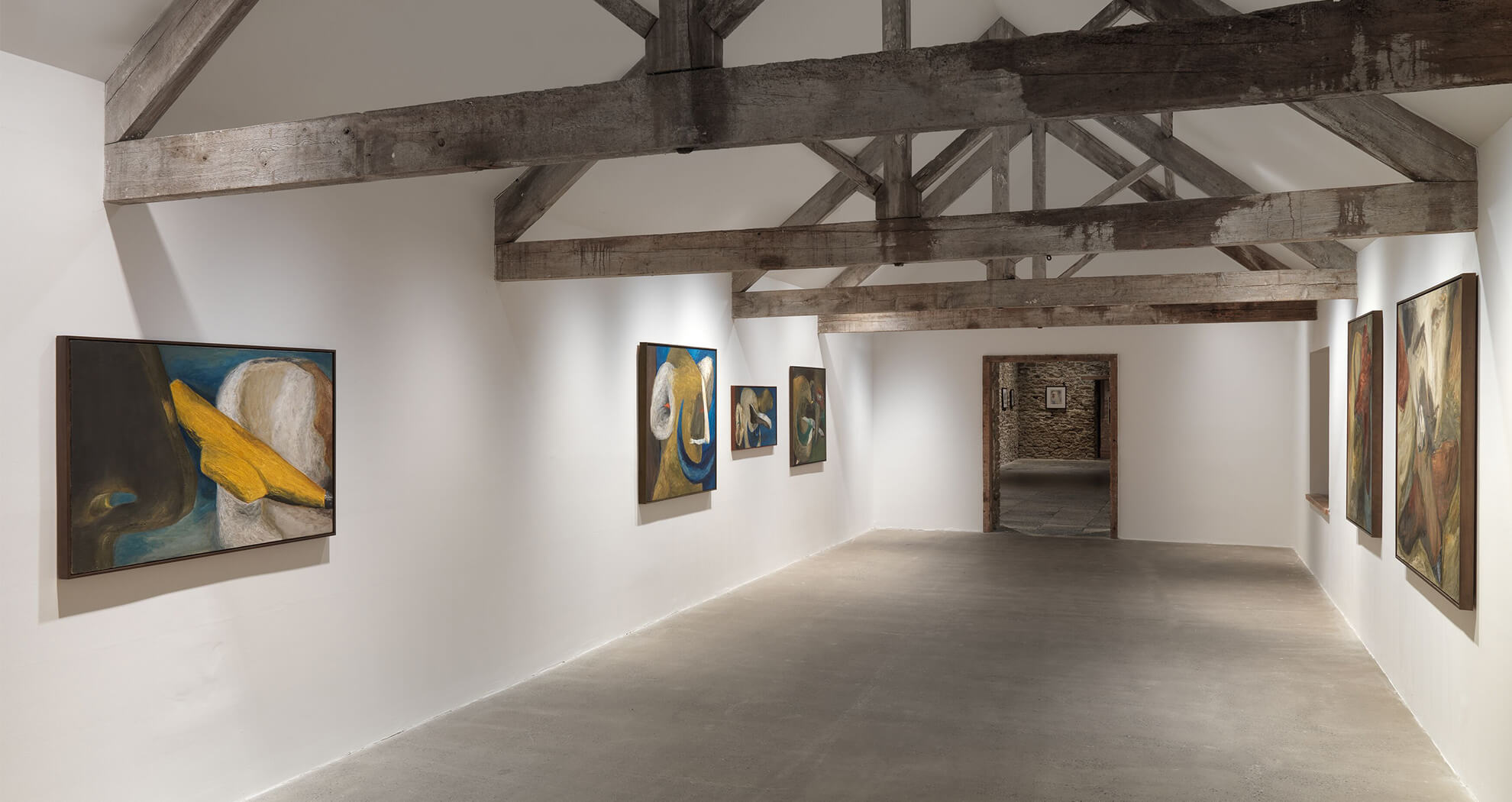
Explore the exhibition
Created in 1962–1963, the early paintings and drawings on view at Hauser & Wirth Somerset use airplanes as a central image and can be considered as examples of the artist’s passionate exploration of creative energy in its purist form. Iris Müller-Westermann writes about the series as ‘Metaphors for a kind of thought energy – for ideas circulating, being heard and taken in, processed, produced, and sent out again. One could regard these airplane pictures as investigations of the raw material necessary for every sort of creative activity.’
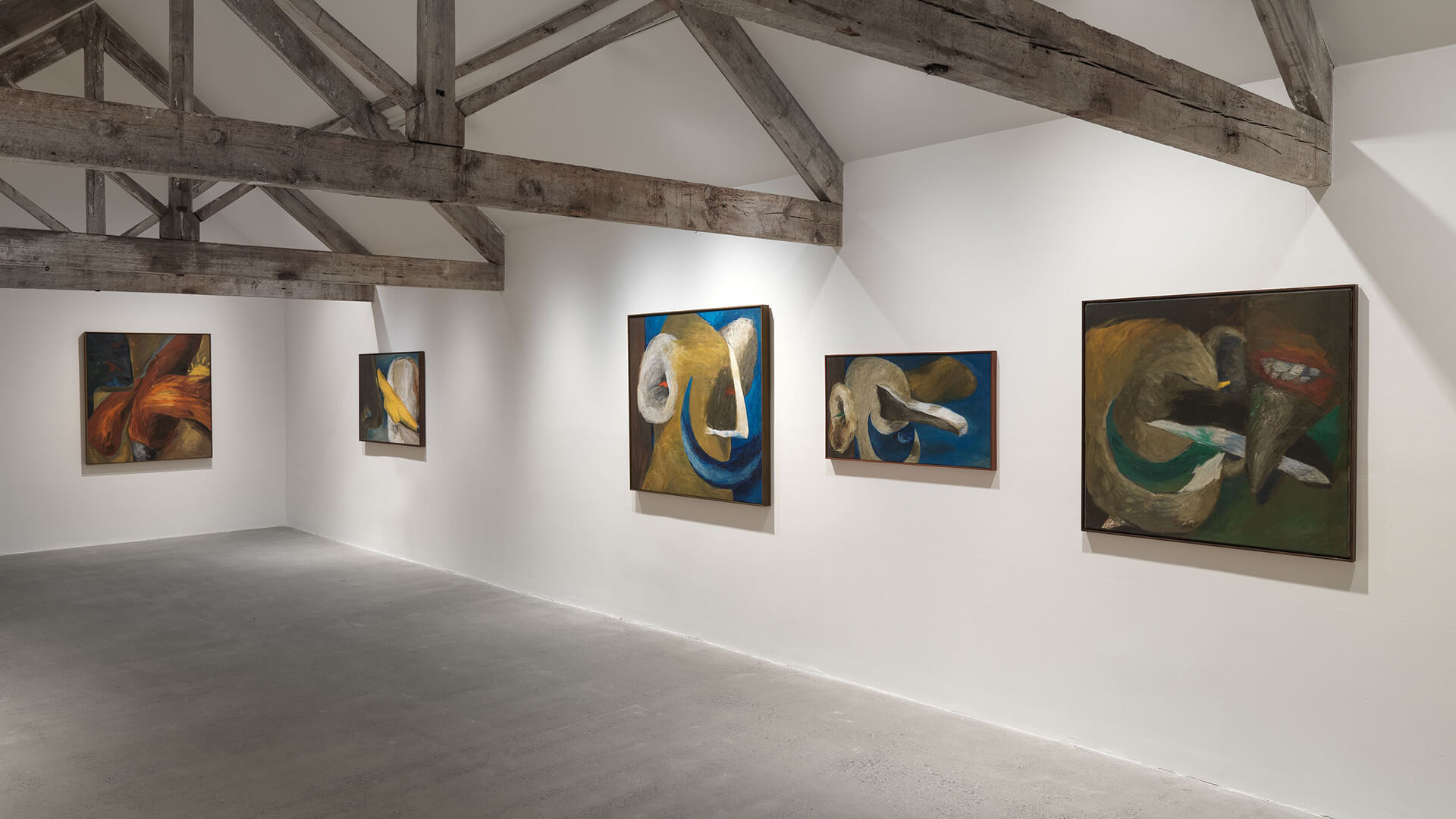
Lozano’s works from the early 1960s are stylistically distinct, admired for their furious physicality, unapologetic confidence and urgent energy. They exploit the boundaries between body and machine, eroticism and aggression, to powerful effect. This focused body of early work exposes a complex and deeply intimate inner life grappling with one-sided gender and societal dichotomies, while other works display a form of ferocious humour and playfulness, exploiting the rhetoric of exaggeration to its most cogent effect. Her raw expressionist brush strokes create powerful works imbued with a very personal iconography, including genitals, religious symbols, tools, body parts, and airplanes.
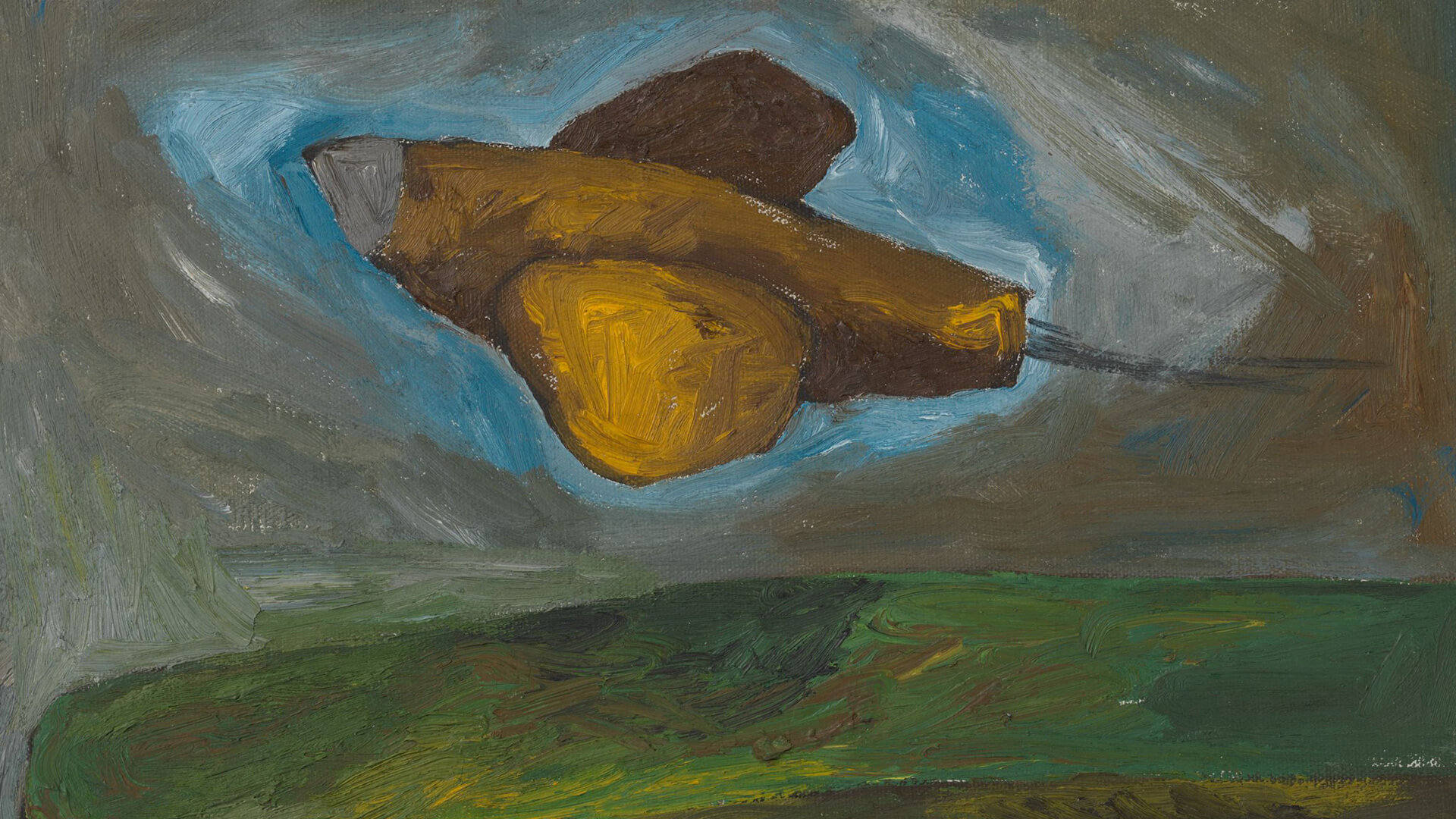
As Iris Müller-Westermann continues, ‘Airplanes began whizzing around in Lozano’s surrealist imagery. They fly into ears and out of mouths, circuit heads, or hover over an erect penis as if above a launching pad.’ Airplanes were masculine intruders into a realm of feminine ambiguity, allowing Lozano to ruthlessly explore the sexual subtext of human interaction, male domination, socially acceptable rituals and scripted gender roles.
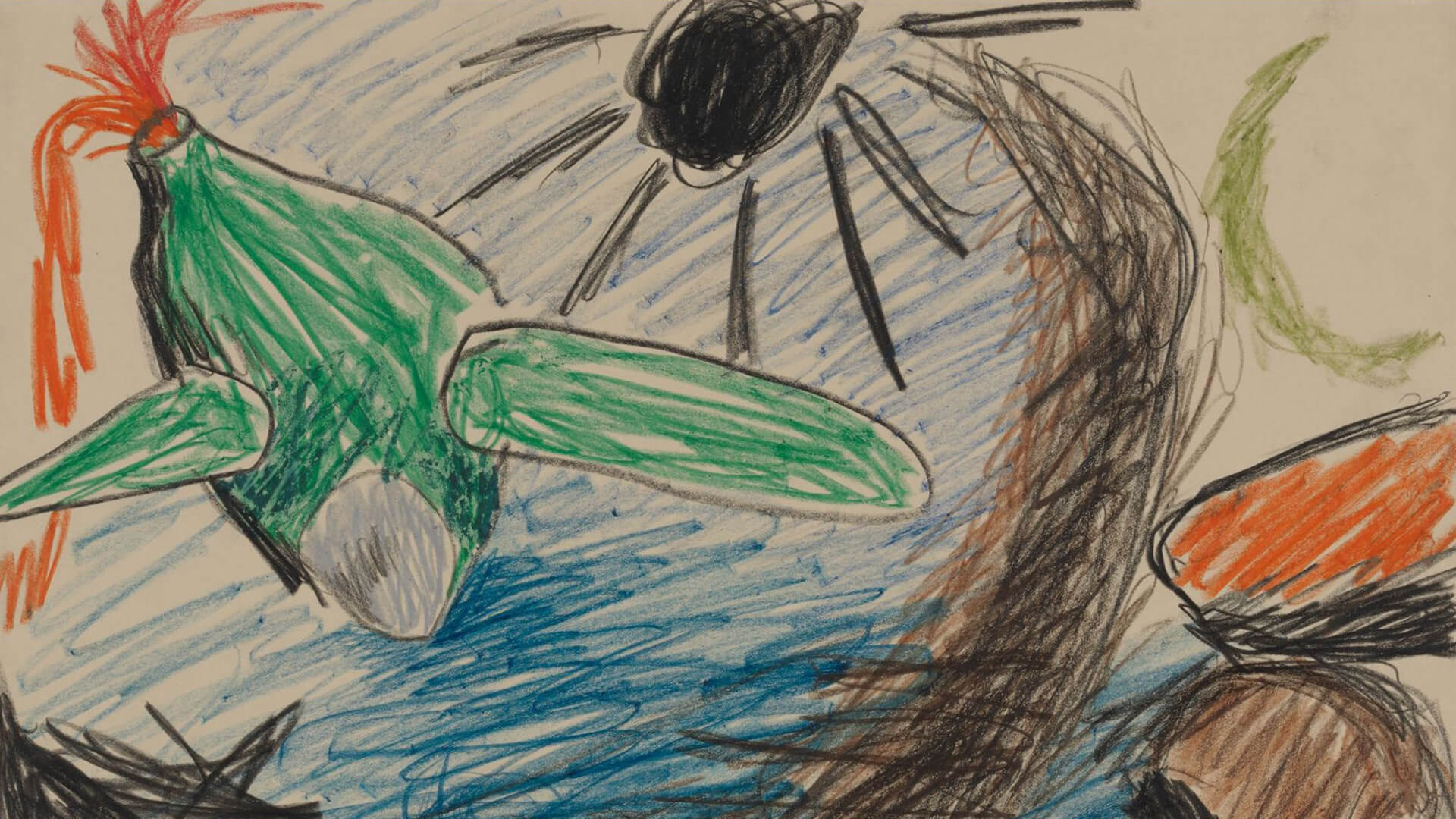
The paintings appear effortlessly provocative, reinforced by an earthy palette – cocoa browns, steel greys, ashen smudged blacks offset with rusty ochre and burnt orange – juxtaposed to bright blues, reds and yellows. The furious brush strokes are built up, fluid and densely packed with information, suggesting an immediacy and surge of human emotion that would continue to dominate Lozano’s thinking in later works. Eric Lawing states ‘Her ability to develop a highly personal painterly style within a social narrative format at a time when most artists were searching for an alternative to expressionism stands as a major accomplishment of 20th century American Art.’
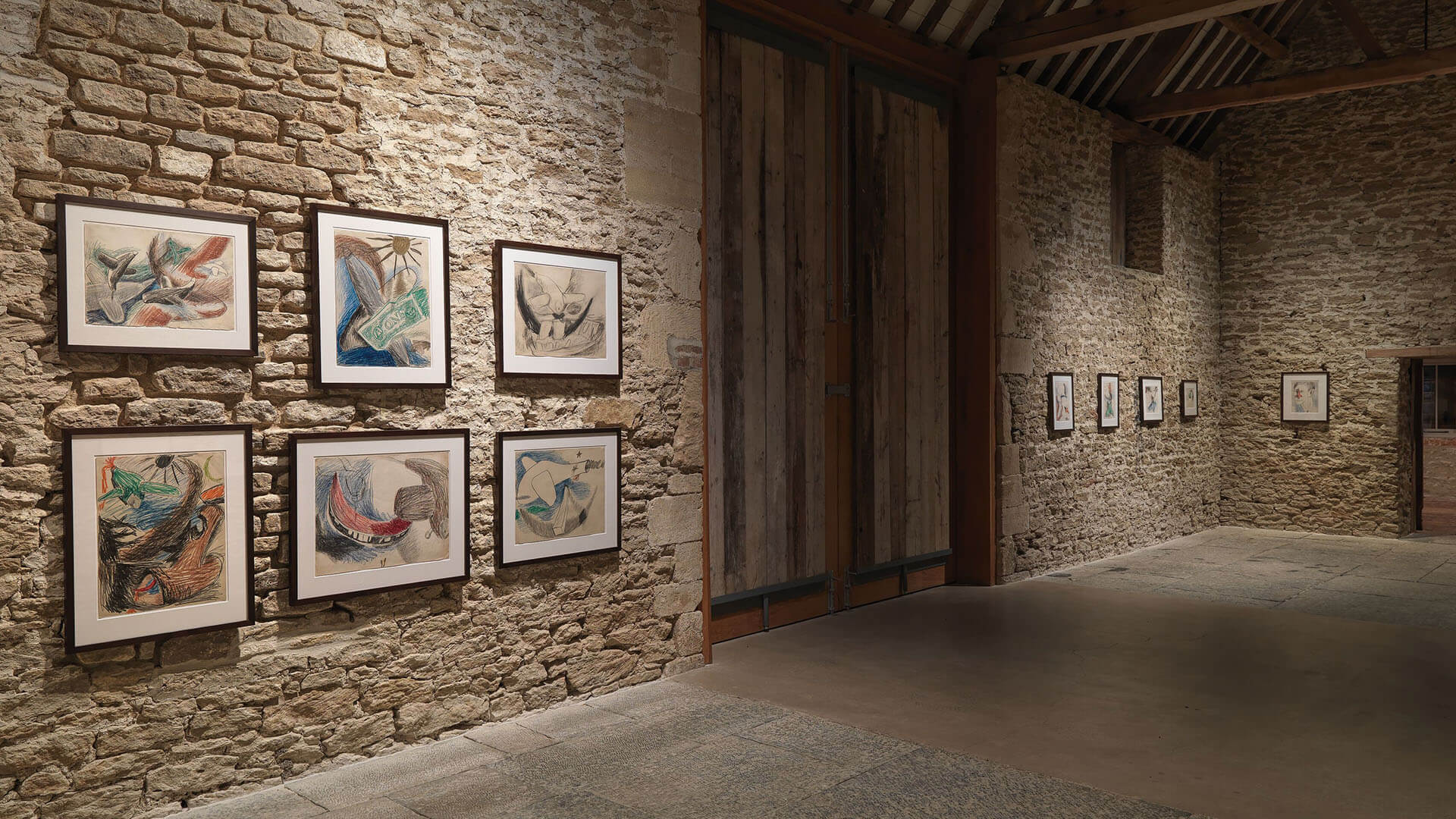
A manifestation of her identity and vision as an artist, these fast-paced drawings and oil paintings are charged with an unbridled and swirling energy – embodied by the anthropomorphic airplanes – also revealing Lozano’s extraordinary technical skills as a painter. Although these works differ stylistically from the subsequent paintings, the series serves as an early representation of Lozano’s unique voice as it began to manifest and transform itself, crystallizing her very own pictorial language into a conceptually consistent trajectory over the course of the 1960s.

On view in Somerset
In order to share a safe and positive experience, we ask that you book a timed reservation to visit Hauser & Wirth Somerset. Please visit our location page to make a reservation.
About the Artist

Lee Lozano
Lee Lozano’s paintings are admired for their energy, daring physicality and tirelessness in investigating the body and issues of gender. Although lauded by Lucy Lippard in 1995 as the foremost female conceptual artist of her time, Lozano had disengaged herself from the New York art world completely by the early 1970s. She left behind a body of work of striking formal breadth and complexity. Lozano fought to consolidate her artistic self in a realm void of systems, rules, and group consciousness. She pursued a wholly independent solo studio practice, which culminated in her rejection of the New York art world and a boycott of women. She first refused to attend public art world functions and withdrew from exhibitions, finally relocating to Dallas, Texas. ‘By refusing to speak to women,’ says Helen Molesworth, Chief Curator of LA MOCA, ‘she exposed the systematic and ruthless division of the world into categories of men and women. By refusing to speak to women as an artwork, she also refused the demand of capitalism for the constant production of private property… The strategy of rejection is a powerful one.’
Inquire about available works by Lee Lozano
Lee Lozano (1930–1999) was a key figure and pioneer within the New York art scene of the 1960s and early 1970s. A shrewd observer of urban culture, Lozano created work in response to the constraints of constitutional systems, disrupting dynamics of gender, power, money and politics. This exhibition is on view now through 10 January 2021 at Hauser & Wirth Somerset.
–
Current Exhibitions
1 / 11
